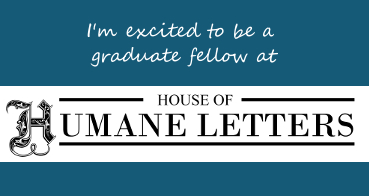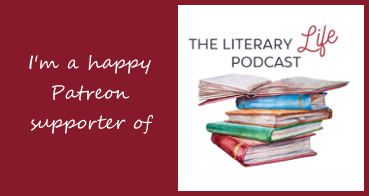
I want to tell you a homeschool success story about a perfectly normal student who was born ready to learn, and turned into an amazing young man—under the tutelage of an imperfect and inexperienced homeschool teacher. (That’s me.)
When my son James was preschool age and developing his verbal communication skills, he made it clear that his mind was already busy with reasoning, because when he was telling us his thoughts about some object, he would often end his story with “…because, look” as he gestured to the thing in question. Obviously, his mind had long been at work with processing and reasoning, even if his spoken words had not yet caught up. It seems he knew that something in the ballpark of reasoning or proof or demonstration was part of discussion, so when his words had run out, he would simply point to the evidence supporting his claims or observations! “…because look!”

And now let’s fast-forward to a few nights ago, when my soon-to-be twenty-year-old son was standing before my husband and me as we sat on the couch. James was going on about a particular computer programming matter that he and his dad had been working on. Well, that’s where he started, at least, but before long he had moved on from there, waxing philosophic about how things and people work in general, throwing in some excellent illustrations from higher math and programming.
I sat there just listening to the words coming out of his mouth. And I must admit that I was not understanding most of it. But I sat there in amazement, thinking, “He went to my school!”
Seriously! I often marvel at the fact that I gave birth to this person. I mean, Jack and I did a lot of imperfect work with James, but he is far more than can be explained by just being like his parents. He is so obviously his own unique person, knowing and caring about so many things that are so far out of my lane. And now here we are two years after he has graduated, and I’m already seeing big evidence that we did indeed choose the right educational path for him. He’s such an impressive and good man. And he went to my school!

But I have to reiterate: “My school” was far from perfect, and hardly Instagram-worthy—ever! But even so, here’s this intelligent young man who cares about many things and is making his way in the world, and still learning today on his own, and probably at the same rate as in the schooling years, if not faster! And he went to my school!
As much as I think I messed up over the years of James’ homeschooling—and believe me, I do have a few regrets—here are some things that I think I got right. Brought to you by some selections from Charlotte Mason’s 20 Principles, along with my comments:
1. Children are born persons.
A child comes with all the mind he needs to learn and a hunger for knowledge. Just watch the newborn exploring the world around him. He is looking and learning with those eyes and ears and those first movements of his arms and legs. I never treated my son as incapable of learning. He was not ignored, and it is hard to remember a time prior to him being a part of the family conversation.
4. These principles are limited by the respect due to the personality of children, which must not be encroached upon whether by the direct use of fear or love, suggestion or influence, or by undue play upon any one natural desire.
The principles referred to here are authority and obedience. As best as I could, I allowed natural rewards and consequences to occur with both his school work and home life. I did not coax or manipulate with prizes or ‘make mommy happy’ or ‘you don’t want to see mommy mad’. (Well, it was ‘mom’ by the time he was 4.)

6. When we say that “education is an atmosphere,” we do not mean that a child should be isolated in what may be called a ‘child-environment’ especially adapted and prepared, but that we should take into account the educational value of his natural home atmosphere, both as regards persons and things, and should let him live freely among his proper conditions. It stultifies a child to bring down his world to the child’s level.
This is self-explanatory, and it has one of my favorite lines. ‘It stultifies a child to bring down his world to the child’s level.’ There’s no stultifying in this house!
11. But we, believing that the normal child has powers of mind which fit him to deal with all knowledge proper to him, give him a full and generous curriculum; taking care only that all knowledge offered him is vital, that is, that facts are not presented without their informing ideas.
‘Living books’ was the majority of our curriculum, though we used textbooks for math and some science. Living books are in a narrative style, generally written by one author who has an obvious love for the material. The full and generous curriculum was not hard to come up with, thanks to the work of AmblesideOnline.
20. We allow no separation to grow up between the intellectual and ‘spiritual’ life of children.
I don’t know what else to say about this. It’s just the way our family of three lives.
If you are curious about the principles that I didn’t mention, you can find them here. But before I finish, I would like to highlight one more principle because I think this may be the place where most of ‘the magic’ happens. I had considered it my job simply to provide the wide and generous feast. And that really was simple, especially with the help of AmblesideOnline having already gathered so many of the resources for me. I did not have to spend time planning unit studies, nor did I have to put out big money buying them. Rather, unit studies had absolutely no place in our school, because, as Charlotte Mason said,…
12. “Education is the Science of Relations”; that is, that a child has natural relations with a vast number of things and thoughts…..
This goes back to Principle #1 — ‘Children are born persons’. They come equipped with a mind that naturally makes connections between things. Constantly in our readings and looking at art or listening to music or being in nature, my son would say ‘this reminds me of…’ or ‘this is like….’, often referencing something else he had read, seen, or heard. Charlotte Mason said several times, in one form another, that all education is self-education. The child must do the work. And they will do it! That is, they’ll do it if allowed—if we get out of the way, and if we don’t stultify with a “childish” atmosphere—if we don’t do the thinking work for them by planning connections or pushing them to make judgments with leading questions typical of Sunday School lessons.
I spent way too much time worrying about my own shortcomings in James’ homeschooling. I had been told in the beginning, but truly am seeing now, that humans are fearfully and wonderfully made, with minds that are willing and able to do the work. And when they do that work, what needs to stick in their minds and hearts will stick! And that practice of making connections will be there for life. Having provided that wide and generous feast, the home educator’s work is done, and the student’s mind has lifelong access to all that richness as they go on with life, experiencing new people and places and ideas.
One of my ‘proudest’ achievements is that I taught my son to read and write. Other than that, I mostly let the books (and art, music, and nature) teach him. As a young mother I had been encouraged to be confident that I would be making a huge difference simply by bringing his education home, and building the bond between us, and now I see how right they were….because look!

James and me, 28 April 2023 [photo credit to ‘the Dad” who apparently couldn’t photoshop out my extra chin. Maybe I should grow a beard, too.]






